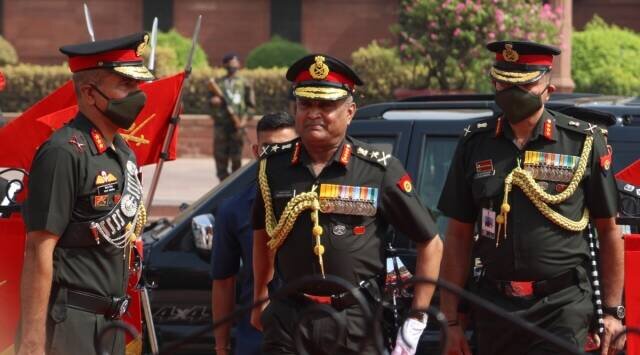China’s actions across the Line of Actual Control (LAC) are still a possible cause of escalation, and the fact that China continues to break existing border agreements and protocols is still a worry for India, Army Chief General Manoj Pande.
Gen. Pande’s comments about China were the harshest ones made by a top officer in recent years. They were part of a speech he gave on Monday at the second Strategic Dialogue on the Rise of China and What It Means for the World, which was put on by Savitribai Phule Pune University and the Centre for China Analysis and Strategy in New Delhi.
Gen. Pande’s direct comments about China also bring up the situation at the Line of Actual Control (LAC), especially in eastern Ladakh, where India and China have been in a military standoff for the past three years. Some points of conflict in eastern Ladakh have been solved by military talks between the two sides. However, in the last two years, there have been violations and fights at Yangtse in the Tawang sector.
Gen. Pande said that India’s unresolved and disputed borders are still the most important part of its operational environment. He said that pockets of disputes and contested claims to territory still exist because people have different ideas about where the LAC goes. “Transgressions are still a possible reason for things to get worse. So, it’s important to keep a close eye on border management, because mistakes can lead to more conflict, as he said.
He talked about the four India-China agreements and protocols from 1993, 1996, 2005, and 2013 that were made to keep peace and quiet along the LAC. He said, “It is still worrying that China is breaking these agreements by trying to cross the LAC.”
The Army Chief said that China has built up a lot of military infrastructure, such as troops, airfields, helipads, and structures for housing soldiers. This has given China a lot of capabilities for mobilizing, using, and keeping up military operations. In order to do this, he said, the Army has been focusing on the northern borders in its long-term planning and ability building.
“We have done the rebalancing of forces that was needed to get the response metric we wanted on the northern borders. We have enough money saved up and are ready for any situation,” he said. “We are still very well prepared, and our troops continue to deal with the PLA in a firm, determined, and measured way while defending our claims.”
Gen. Pande said that the only way to keep peace along the LAC is to follow the protocols and agreements that are already in place. “The LAC needs to be respected, and disagreements should be worked out through established channels, not by troops on the ground using force to change the status quo.”
He said that keeping peace and quiet on the border is the key to making progress in other areas of the relationship. He also said that the situation along the LAC needs to go back to normal and the status quo needs to be restored before the relationship between the two countries can move forward.
He said that China’s view of a rules-based international order is based on “might is right” by pointing to the country’s actions in the South China Sea, its rejection of international tribunal awards on maritime claims, its actions in the Taiwan Strait, and its “bordering on bellicose” actions along the LAC.
He said that the fast growth of the Chinese Navy shows that the country wants to show its power outside of its own region, and the spread of its military weapons equipment and technology is a worry. Gen. Pande stressed that China’s rise as a political, technological, and military power has given it a new place in the world order’s hierarchy, which it plans to lead.
“Mediating peace talks between Saudi Arabia and Iran and putting forward the Chinese 12-point peace plan to end the ongoing Russia-Ukraine conflict show how urgently China wants to replace the US as the global net security provider,” he said.
Gen. Pande said that Beijing is also trying to get more power in international organizations, which are usually run by western countries. It does this by slowly taking over key positions, using economic power, and using bullying or “wolf-warrior” tactics.
The Army Chief also called China’s economic rise “multifaceted” and said that while the country is building an international network of coercion through predatory economics, it claims to be pulling more than 100 million of its people out of poverty. He said that the country’s efforts to expand its sphere of influence through economic manipulation, weaponization of resource supply chains, financing of large infrastructure projects with little regard for safety and environmental standards, and putting recipient countries in debt they can’t pay back are clear to everyone.
Gen. Pande said that theft of intellectual property rights, trade secrets, and technology from foreign companies, as well as unfair trade practices, are also still a cause for concern.
He said that China’s pursuit of technology has been marked by a systematic effort to get technologies from the West. “This also meant luring or stealing scientists and researchers from the West by offering them unlimited funding,” he said.
Gen. Pande said that China has a huge lead in high-impact research in most new technology fields, including defense, space, robotics, energy, biotechnology, Al, advanced materials, hypersonic systems, 6G, and quantum technology.
He said that China’s strategic doctrines have also changed from a war-zone concept of fighting a limited war in high-tech conditions to a three-warfare approach that includes public opinion, psychological warfare, and legal warfare, as well as making an unlimited war with conventional weapons available to destroy an enemy.
